Postgraduate Award Holders
- Current
- Past
-
-
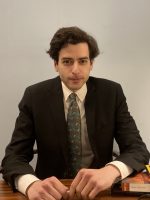
Samir Saad
Samir is researching the political history of law-making in the late Ottoman Empire, Syria and Jordan between about 1860 and 1978. He is surveying the attitudes of political agents toward reform legislation, and the ways in which politics influenced the preparation and adoption of such legislation in the face of crisis and change.
-
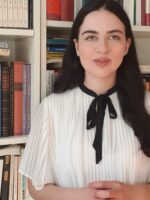
Ms Ruby Haji Naif
Ruby’s research focus on the feminist agenda that women organizations which work on Muslim-Jewish partnership articulate in their services and advocacy efforts. Her research will combine in-depth interviews and participants observation with a feminist organization that works on Israeli-Palestinian Partnership. The research aims to explore how this feminist agenda address inequality while promoting solidarity. The research will explore their feminist agenda based on the intersection of religion, nationality, and gender.
-
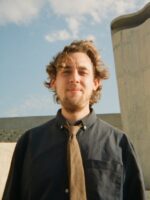
Mr Philippe Thalmann
Drawing from ethnographic fieldwork in Riyadh and the region, my PhD looks at how some sections of Saudi society respond to current state reforms. In particular the social side of it, such as the promotion of women in the workforce, official entertainment, music, international tourism, changes in school curriculums, free mixing between men and women or the limitation of the welfare programs and the religious police. This recent top-down and fast-paced social opening goes with increased circumscription on the religious sphere and the promotion of nationalist narratives. I am interested in how people adapt to a changing environment, implying uncertainties and novelties happening for the first time in their lifetime. I also try to complexify this idea of unprecedented changes, by tracing the reforms in Saudi’s history and in the lives of my interlocutors.
Before arriving to Cambridge, I first tried my chance in Architecture, but I have not been very fortunate at it. So I did a political science BA at the University of Lausanne, Switzerland, where I am originally from, and an exchange year in Istanbul. I then completed a social anthropology MA in Paris, at the School for Advanced Studies in the Social Sciences (EHESS), with fieldwork in Bahrain and Saudi Arabia. Subsequently, I lived in Cairo, trying my best to learn Arabic
-
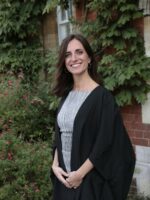
Ms Silvia Lodi
Silvia’s research work intends to contribute to the discipline of Teaching Arabic as a Foreign Language (TAFL) through further examination of teaching and learning vocabulary in the Arabic classroom.
Her study investigates vocabulary acquisition in Modern Standard Arabic (MSA) by non-native speakers and explores methodologies that involve the use of interactive tools and technology-supported materials to effectively teach vocabulary both in face-to-face and on-line classroom. In particular, its purpose is to evaluate the effectiveness of the root-and-pattern strategy in acquiring and retaining words in Arabic.
Silvia earned her BA in Applied Linguistics (2014) and her MA in Modern Languages (2017) from UCSC, Milan. She then took another MA degree in Teaching Languages at London Metropolitan University (2018). Silvia is currently reading for a PhD at Jesus College, Cambridge.
-
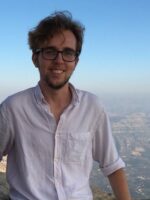
Mr Samuel Martin
Samuel’s research is on literary portrayals of and reactions to Saudi Arabia’s entry into ‘petromodernity’. He examines how novelists conceive of urban environments as composite spaces whose constitutive sites are held in tension by historicizing and modernizing forces. By identifying and interrogating key sites—landfills and cemeteries, roads, office buildings, book markets, and palaces—, Samuel exposes the twinned senses of nostalgia and anxiety that pervade a society whose modernizing project is fundamentally precarious owing to the finitude of its economic motor: oil. His methodology draws from such fields as literary urban studies, the energy humanities, and ecocriticism.
Samuel holds a BA in Asian and Middle Eastern Studies and an MPhil by Research in Arabic Studies from the University of Cambridge. His master’s dissertation, Dead Man Laughing: A Typology of Humour and Laughter in Modern Syrian Literature and Its Relationship to the Abject, was awarded the Council for British Research in the Levant’s 2021 Master’s Dissertation Prize for Levantine Studies.
-
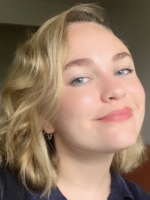
Ms Theo Rossi
Theo Rossi’s dissertation examines the neglected history of mental healthcare in khedival Cairo (1805-1884), drawing on Arabic medical textbooks and journals, as well as archival government sources. She aims to demonstrate that khedival mental healthcare was characterized by dynamic institutional and discursive shifts, the study of which can provide new insights into how the Egyptian state developed, how modern medicine emerged in the Middle East, and how psychiatry coalesced as a global discipline. In particular, her dissertation focuses on: the realities of “madness” and confinement during the 19th century; how Egyptian doctors produced and engaged with vibrant new forms of psychiatric discourse; and how political and social pressures shaped conceptions of madness and its treatment.
Theo received her master’s degree from the University of Oxford in Modern Middle Eastern Studies and her bachelor’s from the University of Chicago. She is also pursuing a master’s in Arabic Language Pedagogy from Middlebury College and is a 2022-23 Center for Arabic Study Abroad (CASA) Fellow at the Qasid Institute in Amman, Jordan.
-
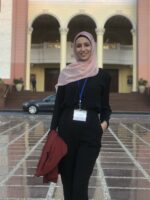
Dana Al Shahbari
Dana’s research focuses on the recovery of May Ziadeh, an overlooked Lebanese-Palestinian writer and literary salon hostess from the early twentieth century. She aims to highlight Ziadeh’s significant contributions to al-Nahda movement, or the Arab Renaissance, while also revisiting and challenging the narrative of madness associated with Ziadeh’s name. Dana further examines the impact of madness on the judgment of Ziadeh’s intellectual value while tying it to the association of madness to women throughout history. Her research fosters a tradition of studying and translating overshadowed Arab women writers, and its methodology draws from different fields of Arabic literature, rhetoric, translation, archives, as well as Nahda and postcolonial studies.
Dana obtained her undergraduate and graduate degrees in English Literature from the American University of Beirut (AUB) with high distinction. During her undergraduate studies, Dana also minored in Arabic and Near Eastern Languages. Her master’s dissertation, Modernist Encounters across Borders: May Ziadeh and Virginia Woolf, is a comparative study of the writers’ approach to shadows and traditions in the realm of global modernism.
-
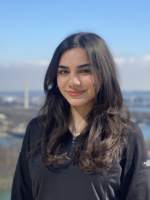
Maya Taha
Maya is a graduate of Boston College and her research focuses primarily on the intersection of Islam and politics in the Middle East and North Africa. Key areas of interest include the role of religion in mobilizing non-state actors and in inciting political activism.
-
-
-
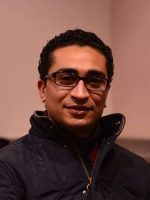
Ahmed Ezzat
Ahmed is studying the ‘History and culture of lawfare in Egypt – The Case of Institutionalising the Prerogative State within Egypt’s Normal juridical Order.
-
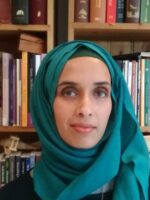
Amina Shareef
Amina’s study investigates the impact of the discourses of community cohesion and counter-terrorism on young British Muslim sense of self and belonging. The key areas of interest are identity and citizenship-making in a global age within the boundaries of nation.
-
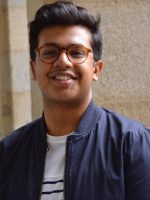
Mahdi Chowdhury
Mahdi is doing a one year Masters looking at ‘Medicalizing Hajj: Kamaran and Tor’.
-
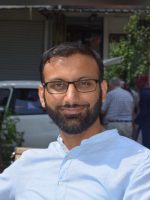
Muhammad Imran Khan
Imran is looking at the question of friendship in Islam – using comparison and analysis of inter-genre exegeses on the meaning of friendship to Muslim scholars in the following texts and literatures: i) tafsir ii) sufi and iii) philosophical.
-
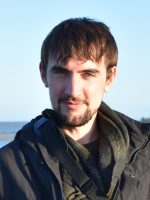
Philip Rushworth
Philip is completing his PhD on an ethnography of young, displaced Syrian and Palestinian men in the city of Dresden.
-
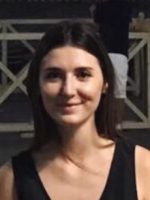
Rachel Kaliszewski
Rachel’s research is focused on the changing dynamics of power and resistance in contemporary conflict, and will be completed under the supervision of Dr Glen Rangwala.
-
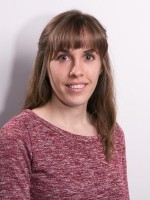
Melissa Gatter
Melissa did her MPhil on “Dar’awi Refugees and the Future of Syria”. She is working on the resilience of social networks among Syrians living in Jordan’s Za’atari refugee camp. She aims to understand how social relationships vital to community life before statelessness transform in the space of the camp.
-
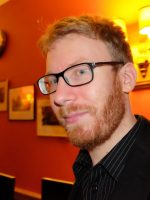
Matteo Benuzzi
(2016-2017)
-
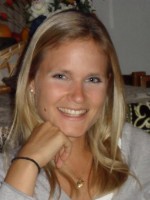
Dorothea Ramahi
-
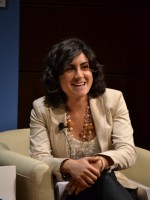
Samar Samir Mezghanni
-
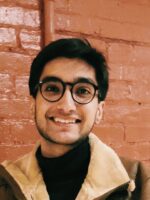
Mohammad Adnan
Mohammad received his B.A. in History at Princeton University, and an MSc in Modern South Asian Studies at St. Antony’s College, Oxford. His MPhil thesis traces the history of French missionary schools in Tehran during the Pahlavi period. At Cambridge, he is a member of Wolfson College.
-
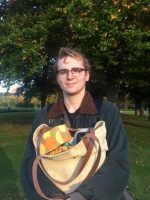
Casper Sanderson
Casper has received an MA (Hons) in Arabic, Persian and Russian at the University of St Andrews. His MPhil thesis examines the manifestations of dissent in contemporary Iranian hip-hop through the lenses of Instagram and Youtube, focusing notably on the rapper Amir Tataloo.
-
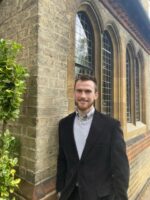
Luke Wilkinson
Having studied History at Cambridge, Luke is continuing his studies here with an MPhil in Political Thought and Intellectual History. Luke is currently researching a thesis on the reconstruction of Islam in Muhammad Iqbal and Khomeini. His focus is on how these two towering magi of Islam developed Islamic ideas of temporality, freedom, and revolution in conversation with European philosophers like Bergson and Heidegger. In so doing, Luke hopes to navigate the range of influence of Iqbal in Iran while rebuilding Khomeini “the Ayatollah” as a complex philosopher (he has long been reduced to a mere political tactician).
Luke is also currently writing a piece on temporality and history in the thought of Iqbal, with a focus on the thinker’s educational context at Cambridge between 1905 and 1907. This context has been under-appreciated in Iqbal’s later thought even though the convergence of theories of relativity in physics and British idealism – the crackling debate at Cambridge during the turn of the twentieth century – appears throughout Iqbal’s discussion of temporality and philosophical history in his magnum opus, The Reconstruction of Religious Thought in Islam.
In the past, Luke has written – academically and for wider circulation – on the concept of revolution in the thought of Ruhollah Khomeini, Maltese postcolonial thought, and temporality in the Mediterranean.
-

